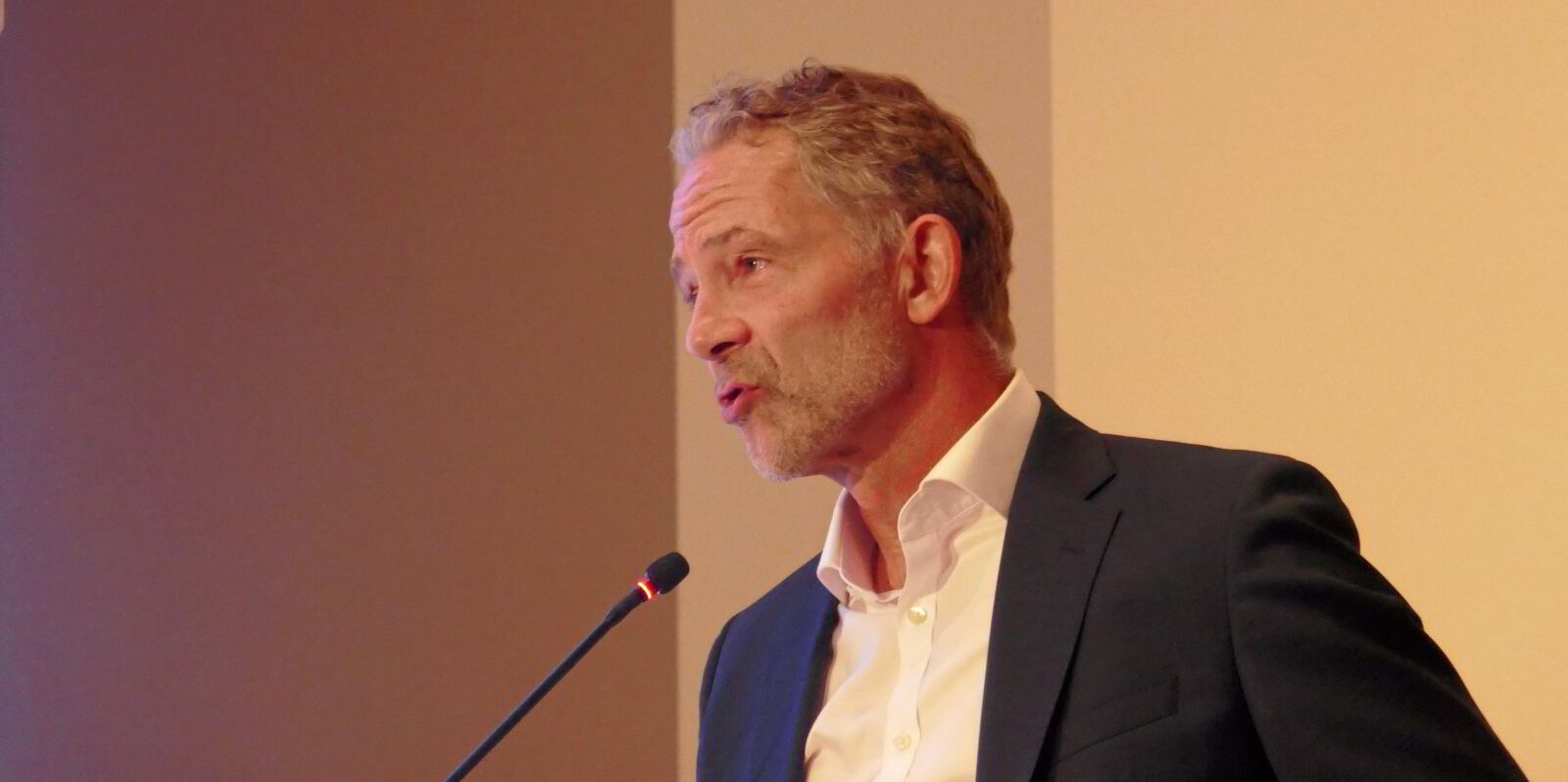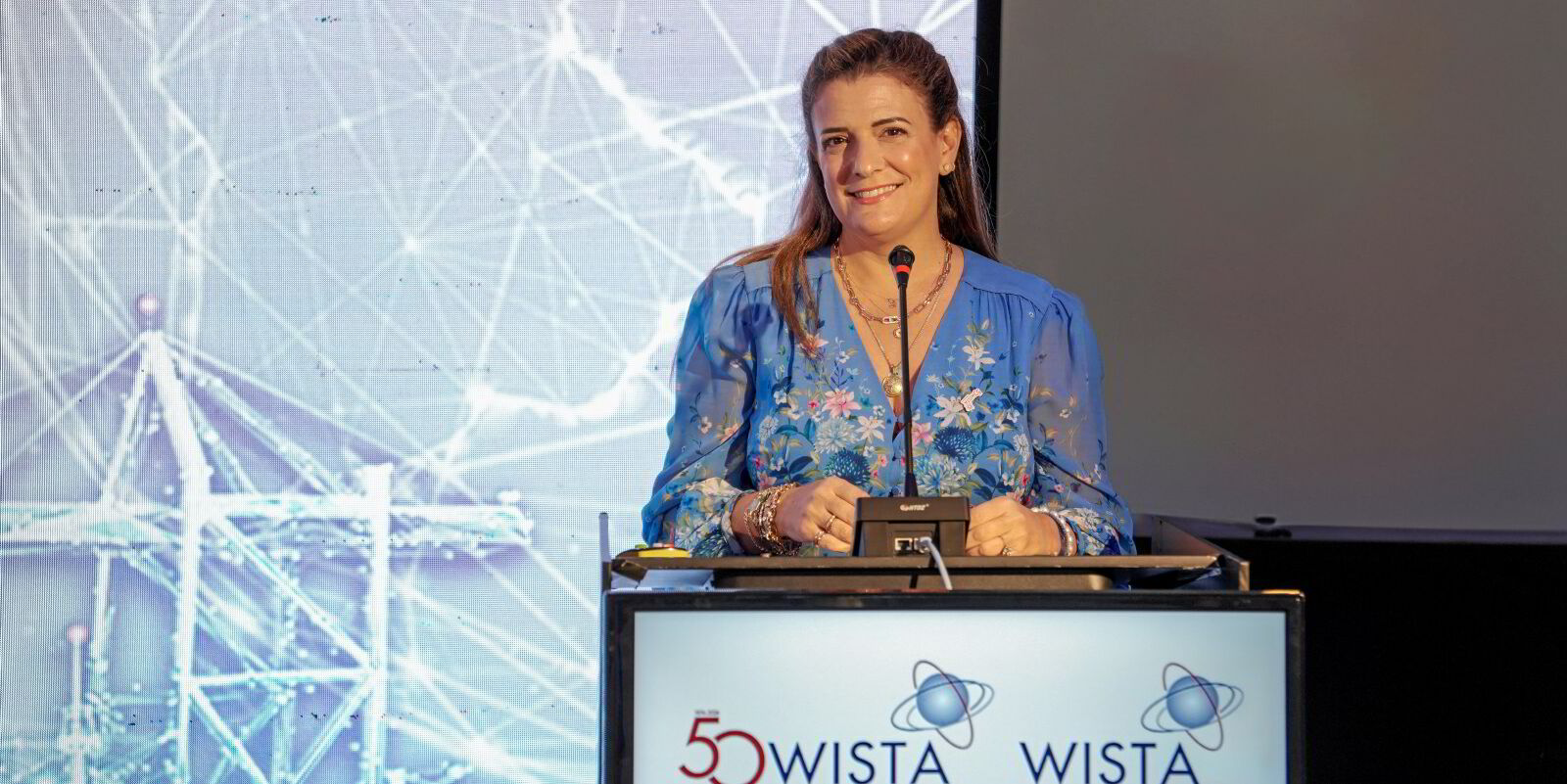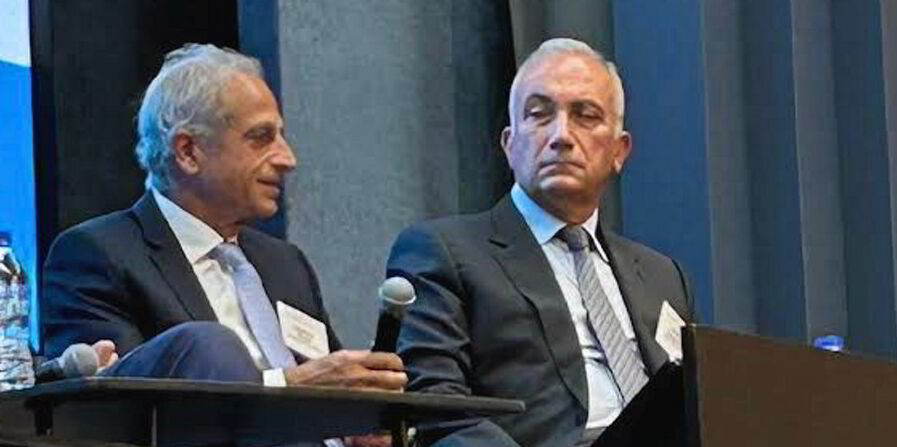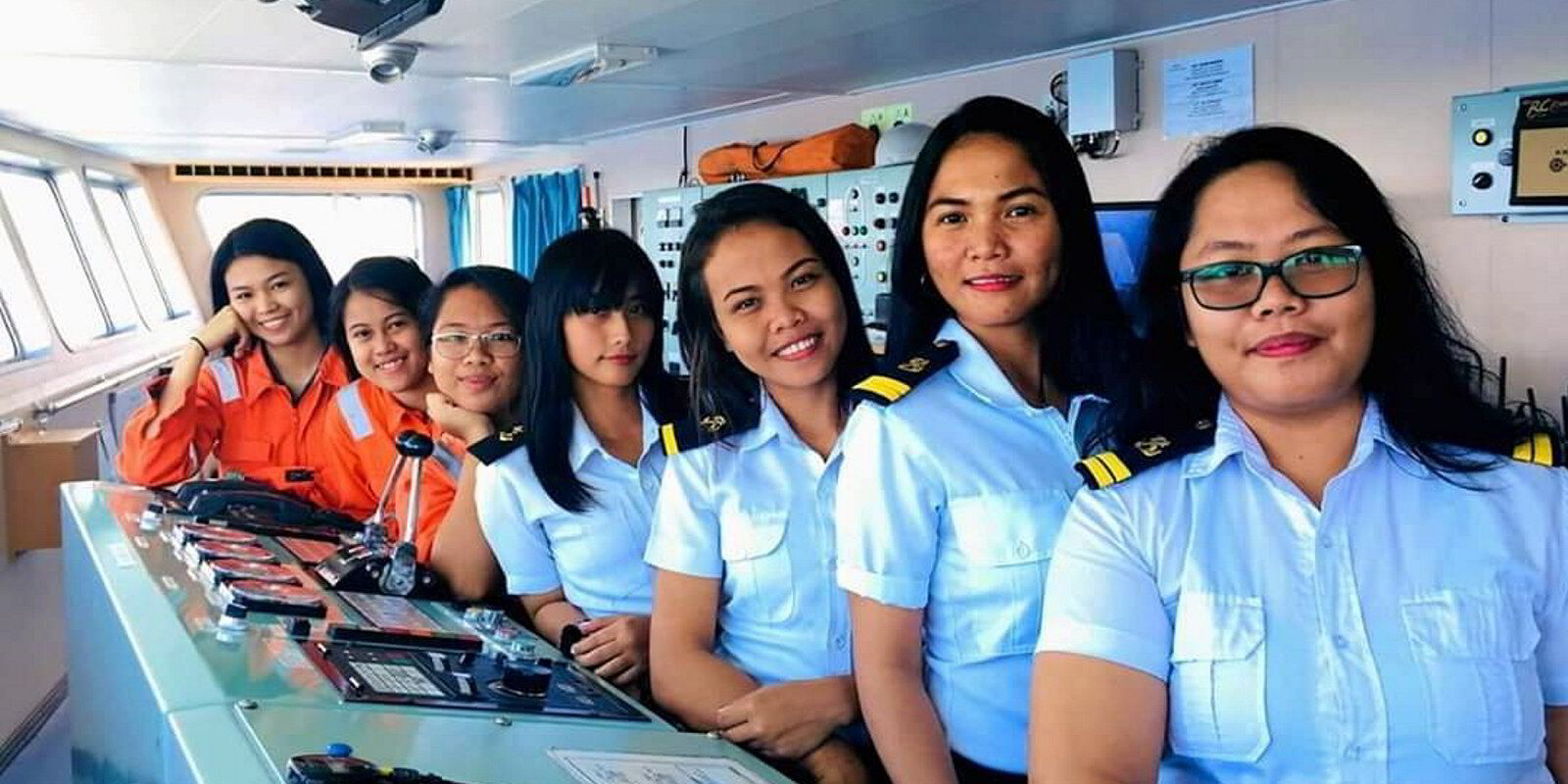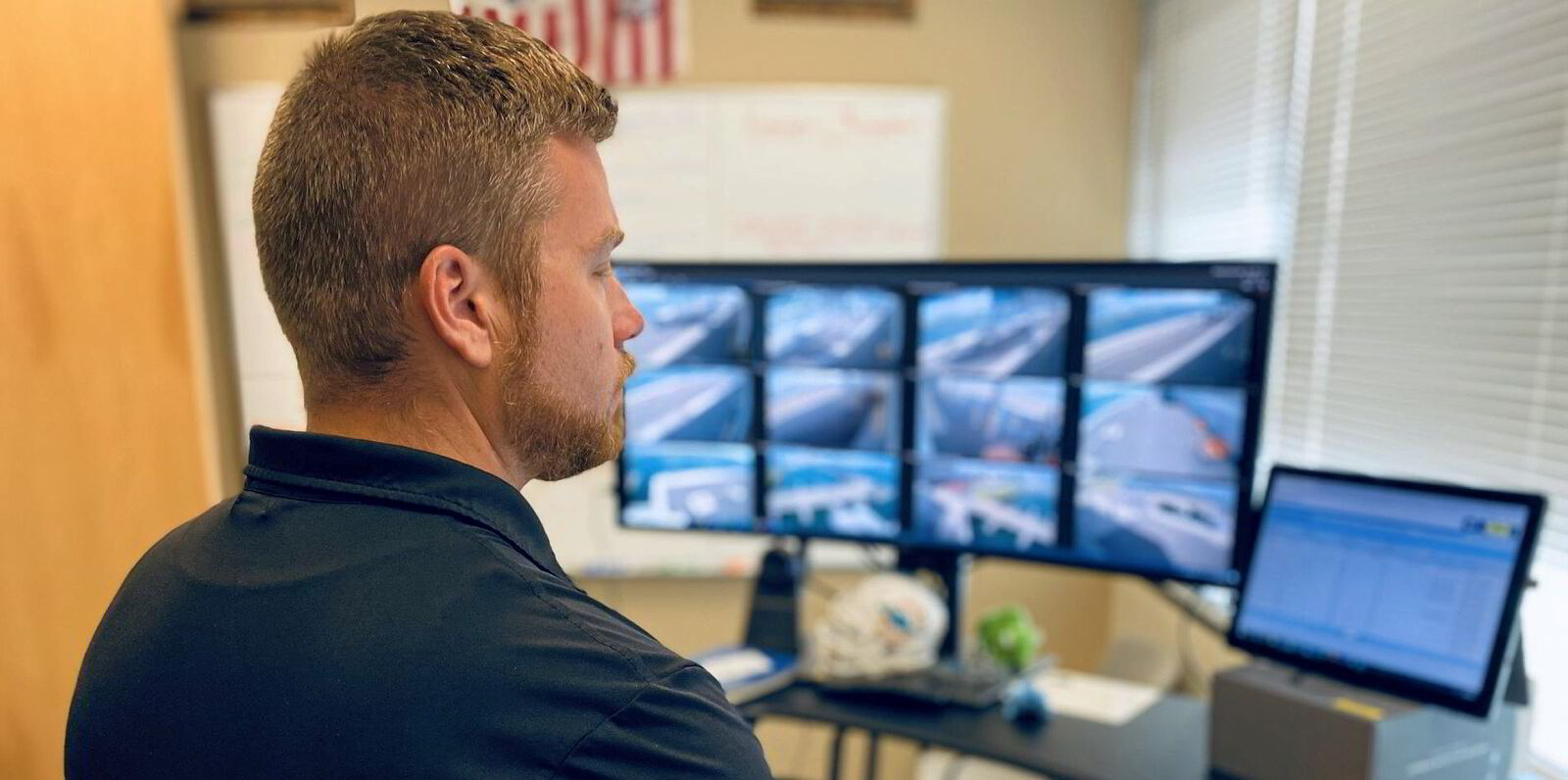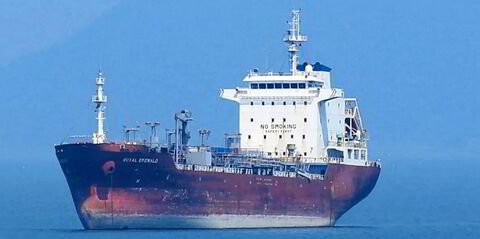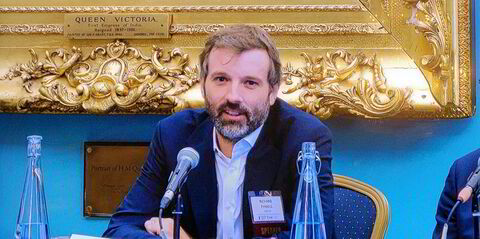It takes some nerve to visit someone’s house on their birthday and tell them their life’s work is outdated.
But that is what happened when Columbia Group CEO Mark O’Neil spoke at the Women in Shipping & Trading Association (Wista) conference this month.
The event coincided with the 50th anniversary of Wista UK.
But guest panellist O’Neil chose that moment to tell women gathering to celebrate five decades of campaigning that times had moved on.
“Previously, the [diversity] debate was about discrimination — sexual discrimination, gender discrimination, how do we attract more women into shipping. I think that debate itself has moved on,” he told a packed auditorium.
Other panellists began to shift uncomfortably in their seats, signalling that O’Neil may not be striking the correct chord.
Nevertheless, he persisted.
“What we have here is probably an anachronism. Credit to Women in Shipping for raising the whole issue of equal treatment, but I would like to see Dista — Diversity in Shipping — or even a Pista — People in Shipping — because the diversity debate is much, much wider than women,” he continued.
In shipping, we usually think of self-ignition risk as something to do with oily rags.
But I can’t have been the only one who was dangerously close to combusting. The outrage in the room was palpable.
A man appeared to be telling women: “You guys are done here — now sort all this other stuff out.” (I am paraphrasing).
Given her right to reply, Wista International president Elpi Petraki said Wista’s diversity committee ensures the organisation’s work is intersectional and representative of its global membership.
But it is not on Wista to equalise shipping for people of all identities.
“Wista is doing its best, but it should be every one of us in this industry trying to show how important diversity is — but not just in words, if I may say, but in real actions,” Petraki said.
O’Neil then attributed his view to the “Gen Z” women in his office, who he said had not attended because they felt “the debate [had] moved on”.
An audience member immediately pushed back, saying: “I hate [it] when people dissociate themselves from the problem and go, ‘oh yeah, the next generation or the different generation’.
“We’re all in this industry together and ageism is also part of the diversity piece.”
For many women I spoke to, O’Neil’s comments showed a misunderstanding not only of Wista and women’s issues but also of diversity, equity and inclusion (DEI) work in general.
Indeed, conversations are already circulating privately among Wista members about what involvement, if any, the organisation should have with Columbia and O’Neil going forward.
The irony of all this is that there are people within Columbia who are working on DEI with passion, competence and impact — Claudia Paschkewitz is the group’s lead.
Why is there such a disconnect with the man in the top job?
My thoughts are this: You cannot create a level playing field for women by simply pretending gender-specific issues do not exist or are no longer relevant.
And, as a man, you are out of line if you are telling women what does and does not affect them.
Women are still woefully underrepresented on the boards of private companies, international bodies and on board vessels.
They are still hindered by career-limiting business practices, and everyday aggressions and microaggressions.
It is entirely legitimate for our industry to have a focal point — Wista — that works on behalf of women to create change.
Wista’s work is far from done.
I say it is straight-up hubris to tell a minority group in shipping that they should take on extra work to solve systemic problems they did not have a hand in creating.
The fact is, we need male allies in a male-dominated industry — but genuine allies who listen.
Men are our friends, mentors, supportive colleagues and often the bosses who believe in us and promote us.
The Wista conference featured men who are taking real action.
The president of Cyprus pledged to work with Wista to equalise shipping careers for Cypriot women.
International Maritime Organization secretary general Arsenio Dominguez reiterated his refusal to speak on all-male conference panels and called on others to do the same.
Men, your support is valued, necessary and frankly, it makes work a better place.
But women have no need for false friends. Those men are — what’s the word?
An anachronism.
